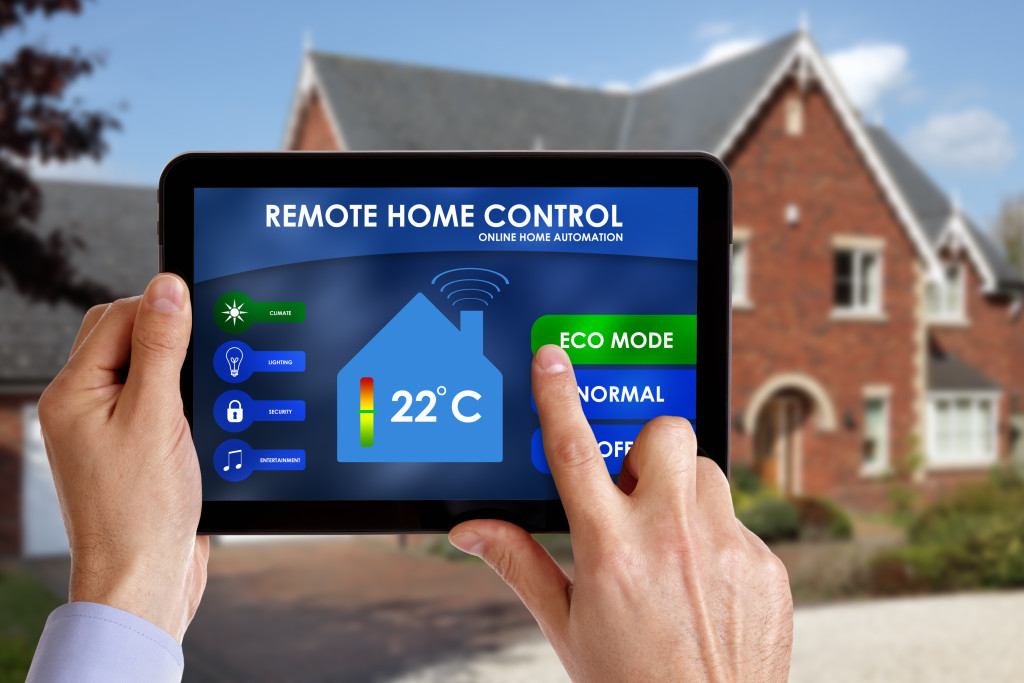American homes and commercial buildings use up to 40 percent of the energy in the country. Around $200 to $400 of the average $2,000 spent annually on energy bills could be wasted from drafts and air leaks. You can save money and make your home comfortable by reducing these losses through energy efficiency upgrades.
An energy-efficient home is not only better for the environment. But, it can also save you money on your energy bills. There are many small things people can do to increase the energy efficiency of their homes. Some people might think they need to make expensive renovations to save on their energy bills, but this is not always the case. There are many ways to improve your home’s efficiency without spending much money.
Here are several tips for increasing your home’s energy efficiency without breaking the bank.
Seal air leaks and insulate your home.
Sealing air leaks and insulating your home are essential steps in increasing your home’s energy efficiency. Air leaks can allow cold air to escape in the winter and hot air in the summer, resulting in higher energy bills. Insulating your home can help keep the heat or air conditioning inside, saving you money on your energy bills.
You can seal leaks through weatherstripping and caulking. Weatherstripping is applied to movable components, like doors and windows, to fill the gaps between them and the frame. Caulking is used to seal cracks and openings in stationary house components, like around door and window frames.
Insulating your home can be done in several ways, depending on the insulation you choose and where you want to install it. Some common types of insulation include fiberglass, cellulose, and spray foam. You can insulate your home’s walls, floors, ceilings, and attics to help keep the heat or air conditioning inside.
Replace incandescent light bulbs.
You can reduce energy consumption by replacing your home’s older, inefficient light bulbs with newer, more energy-efficient options. Many incandescent bulbs are unsuitable for their use, causing them to waste energy. You can waste energy when you have reflector light bulbs in recessed fixtures since they trap light in the fixture.
Some outdoor fixtures are also inefficient in providing light in an area. They can disperse light to places that they are not supposed to cover. In this situation, you are causing light pollution instead of energy efficiency with your lighting fixtures.
Fixing your lighting problems using LED bulbs allows you to save money and use energy efficiently. And when you use renewable energy to power these bulbs, you increase your energy savings. If you plan to use renewable energy, you should look for reputable solar companies in your area. The company should have the knowledge and experience to design and install solar panels in the home. Also, the company should be able to help you maintain your solar panels to prolong their lifespan.

Install a programmable thermostat.
A programmable thermostat is a great way to automatically save money on your energy bill. By setting it to only heat or cool your home when you are home, you can avoid wasting energy when you are away or asleep. Many programmable thermostats can even be remotely controlled, so you can ensure your home is comfortable no matter where you are.
The programmable thermostat allows you to set the times you turn on air conditioning and heating units. You can use a preset schedule to ensure they turn on or off whenever necessary. You can store multiple settings on many programmable thermostats. You can also override these settings without affecting the program.
If you have an older model thermostat, consider upgrading to a newer, more energy-efficient model. More recent models are often more accurate, so you can avoid wasting energy by heating or cooling your home when no one is there. You may also find that a new thermostat has additional features, like the ability to control it remotely that can further increase your energy savings.
Upgrade to Energy Star appliances.
Energy Star appliances are some of the most energy-efficient appliances on the market. They are certified by the Environmental Protection Agency to use 10 to 50 percent less energy than standard appliances. This can save you much money on your energy bill over time.
Energy Star appliances also tend to last longer than other appliances, so you’ll save money on repairs and replacements. And many Energy Star appliances come with sensors that adjust power usage depending on how much laundry or dishes are done. This means they use even less energy when you don’t need them.
Making your home more energy efficient is a great way to save money and help the environment. Following the tips in the article can help you make your home more comfortable and save money on your energy bills.

